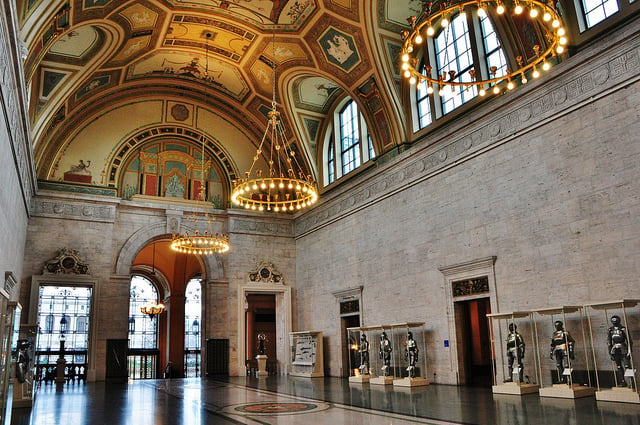
After a hard-fought battle to save its collection from creditors, the Detroit Institute of Arts (DIA) appears to be nearly out of the woods. As reported by the New York Times, Detroit’s only remaining major creditor, Financial Guaranty Insurance Company (FGIC), may be about to settle with the city.
On Tuesday, FGIC asked for the ongoing trial to be suspended to allow the two sides time to come to a consensus. Initially, the court would have heard arguments from both sides over whether or not the DIA collection should be sold in order to help satisfy the city’s debts.
FGIC had been arguing that the city should borrow money against its art collection, and had presented several proposals from the Art Capital Group that would leverage the DIA’s holdings (see “Creditor Still Wants to Sell Detroit Institute of Arts Collection“). Detroit’s plan involves a “Grand Bargain” that secures $816 million for city pensions through the state, foundations, and the museum (see “Detroit Institute of Arts Would Be Safe Under City’s Bankruptcy Adjustment Plan“), as well as a $275 million Barclays Capital loan secured by city tax revenue.
Shortly before declaring bankruptcy, Detroit defaulted on a 2005 loan of $1.4 billion in pension funds borrowed from FGIC. During this year’s proceedings, the city claimed the loan was void as it exceeded legal borrowing limits. FGIC countered that the city should then return the funds, and that it did not have to honor insurance claims on the $1.1 billion insured portion of the debt. Should the two parties indeed reach an agreement, this dispute would be resolved.
Despite this good news, the embattled museum is under renewed attack, this time over massive raises received by two of its high-level staffers in 2012. As reported by the Detroit News, outraged local politician are calling on the employees in question to return the money, or for the museum to implement measures to prevent such large raises, funded by taxpayer money, from being given out in the future.
UPDATE: As reported by the New York Times, FGIC and Detroit have reached a settlement granting the company the development rights for a hotel and retail and condominium complex at the Joe Louis Arena site, home to the Red Wings hockey team. The settlement is pending the approval of Judge Steven W. Rhodes. If granted, the city will move to leave the protection of bankruptcy court, provided that Rhodes feels that they have reached a feasible debt adjustment plan that does not unfairly discriminate among creditors.